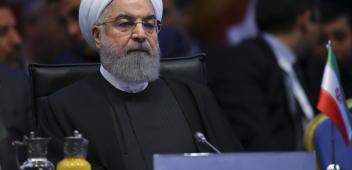Radicalisation woes still here
Radicalisation woes still here
Rodger Shanahan
The Canberra Times
27 October 2015

Executive Summary
There is a compelling desire to leave Islamic terrorism as the defining narrative of the early 21st century security landscape and return to a focus on our region. In January 2013, then prime minister Julia Gillard launched the national security strategy with the confident assertion that we were transitioning from the "9/11 decade". Osama bin Laden was dead, al-Qaeda's senior leadership fractured, Jemaah Islamiyah decimated, and numerous terrorist plots at home thwarted. Australia's "work in Iraq had been completed". As a consequence, our principle national security focus would be on our region, and post-2013 would see states, rather than non-state actors, as the most important drivers of our security thinking. However, for all the talk of tensions in the South China Sea, the transition from the "9/11 decade" seems to have been put on hold. RAAF aircraft are bombing Islamic State targets in Iraq and Syria. Several hundred Australian soldiers have redeployed to Iraq in a train- and-assist capacity after Islamist militants routed the Iraqi army and took hold of the country's second- largest city, Mosul. More than 30 Australians have been killed fighting for Islamist groups in Syria and Iraq, with more than 120 now fighting there and another 170 Islamic State supporters in Australia. More than 130 people have had their passports cancelled or suspended, or been refused one on suspicion of joining or supporting the fighting; ASIO has more than 400 investigations under way (double that of a year ago) and two Muslim teenagers were recently killed attacking police in separate incidents in Sydney and Melbourne. The radicalisation of elements of Australia's Muslim population is of intense security concern not only because of the obvious physical damage that domestic terrorists can inflict, but because of the potential damage it can do to the social fabric of a multicultural country like ours. Australians have travelled overseas to fight before. Before World War II, about 70 travelled to Spain to fight against the fascists, and in 1972 a group of 15 Croatians travelled to, and were killed in, Yugoslavia trying to incite a popular uprising as members of the Croatian Revolutionary Brotherhood. However, the threat from Islamic terrorism and the attraction to Islamist causes by an admittedly small element of the population is different in so many ways. It represents something foreign to Australians because it shows that, for some people, religious identity trumps all else, including their national identity. To them, Western foreign policy is intended to humiliate the global Islamic community and their religious identity demands that they oppose it, including by taking the fight to the West itself. The increasingly interconnected world has made it much easier for people to be influenced by overseas events. Slick social media campaigns from highly skilled producers who know their target audience, and online chat rooms that convince individuals that expressing a violent interpretation of their religious identity is their paramount duty, are some of the means by which the intolerant message is spread. Propaganda such as this is difficult to counter because it is readily available and creates a narrative that is particularly attractive to those on the margins of society. Even so, Australia's Islamic leaders, fractious at the best of times, have been defensive and have failed to provide the strong, vocal leadership that their communities deserve, and that the broader Australian community demands. The Muslim community's leadership's unwillingness to try to lead, and therefore shape, the debate has opened space for radical right-wingers to be heard. As well as dealing with radicalisation as a domestic security issue, its narrative of Muslim fighters empowering the community against their oppressors gains traction because of jihadist successes in Iraq and Syria. This has required a Western military response, of which Australia is playing its part, to help degrade Islamic State and build Iraqi army capability. The Australian government has also dipped its toes in the Syrian quagmire without anything that approaches a coherent strategy. The word "moderate" is bandied about to describe militias of varying degrees of religiosity with whom an attempt to find a common purpose has been made, but the disconnect between Western, secular, liberal values and those of the armed groups highlights exactly how hard it is to operate in the Middle East. The problems that beset the Middle East are virtually insoluble: poor governance, lack of any meaningful reforms, an education system based on rote-learning rather than critical thinking, and multiple individual identities that are often intolerant of "the other" and that make it difficult to create a national identity. Although these problems create the conditions for conflict, the West can solve none of them. Yet they fuel domestic radicalisation in Australia, which creates a challenge for our security agencies. Issues of personal identity are a driver of Islamic radicalism, overseas and domestically. And in an interconnected world, the ability to develop an identity that is antithetical to that of the host country has become easier. Information flows without any context can appeal to the religious identities of teenagers and young people who have little experience of real life and even less ability to refute the intolerant narrative they are fed. With a new generation of experienced jihadists having been created courtesy of the fighting in Syria and Iraq, we shouldn't expect to transition from the "9/11 decade" any time soon.
Dr Rodger Shanahan is an associate professor at the ANU's National Security College and a fellow at the Lowy Institute for International Policy.


